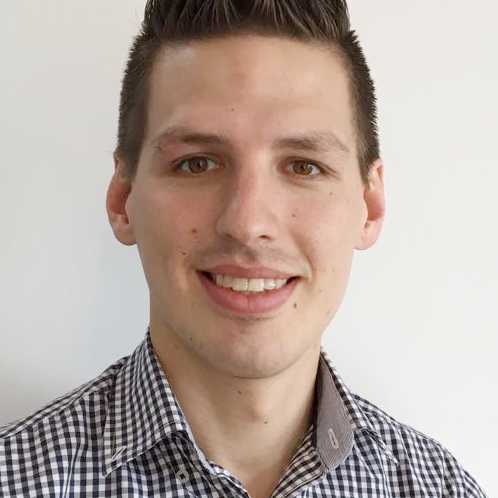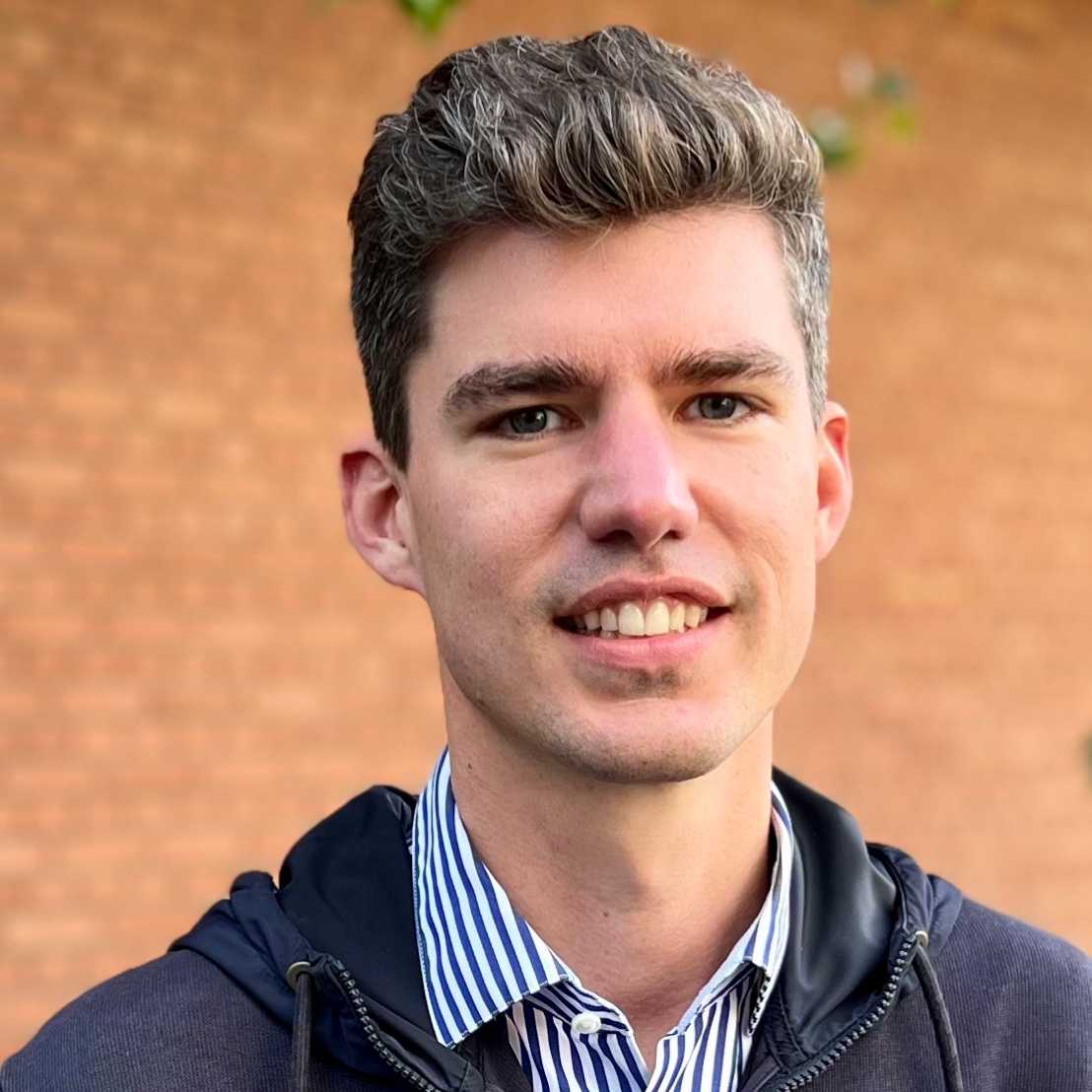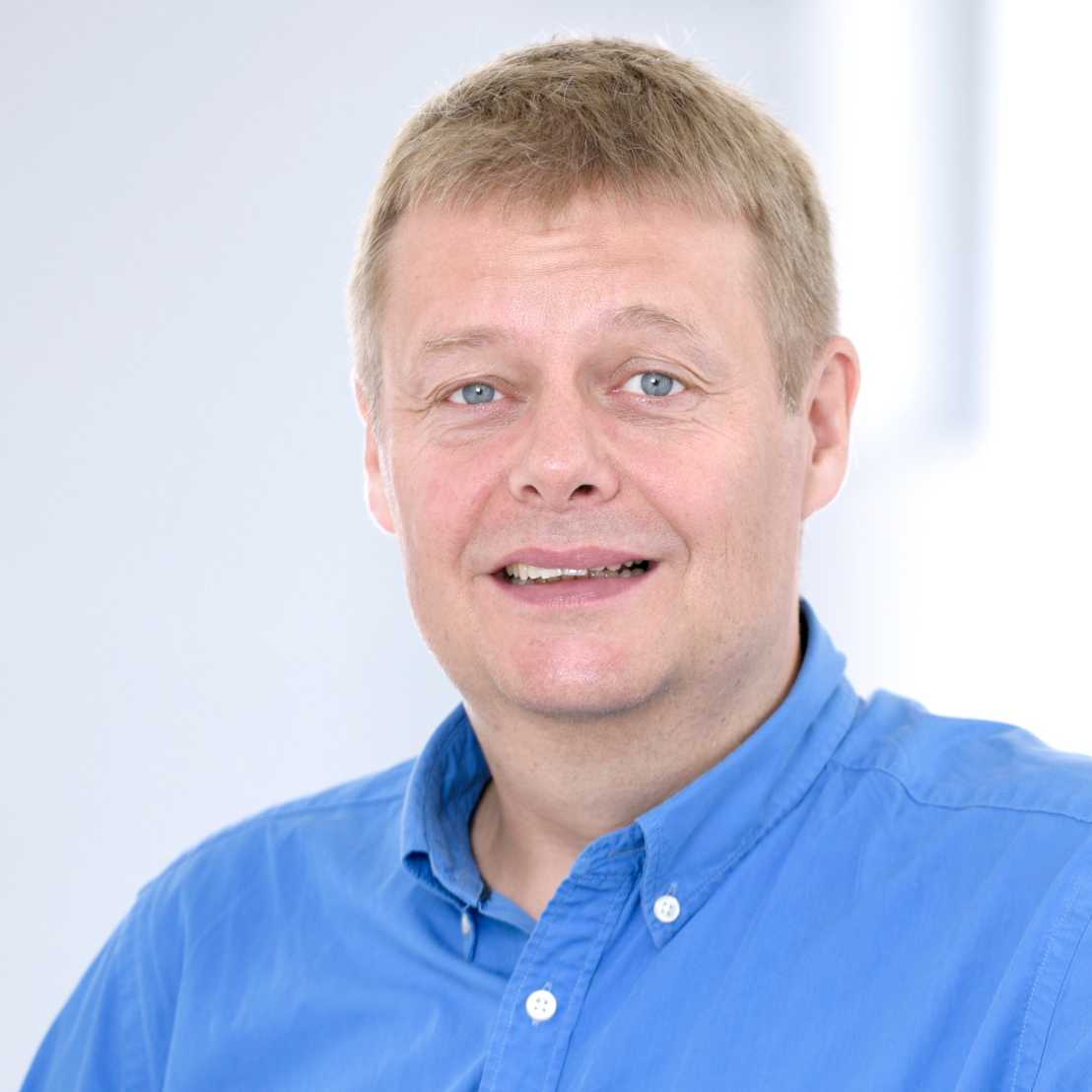Providing a springboard to independence
A postdoctoral researcher starting his own group, a pioneer in academic-industry collaboration, and a startup entrepreneur: they all share the vision of finding their personal career paths. Interviews with three members of the Bioprocess group led by Sven Panke on their career goals, personal interests and their needs to become independent.

Adrian Bunzel
postdoctoral researcher and leader of the group Enzyme Design and Evolution
You applied for an SNF Ambizione Grant and needed a ‘home’ for your new lab and research group. You succeeded not only in your application but also convinced Sven to host you. What is your research about and how will it fit into what the Panke group is doing?
Sustainability is a crucial concern of our time. My group tackles this challenge by creating photocatalytic enzymes that harvest sunlight in solar cells and for catalysis. We do so by combining computational design tools with experimental directed evolution. I am excited that with the Ambizione Grant, I can start to realise my own ideas for research and create photo-biocatalysts to tackle various sustainability challenges such as energy production, hydrogen synthesis, and carbon capture.
The Panke group has done fantastic work in the field of applied biocatalysis. When it comes to taking my photo-enzymes to the next level - in the cell and to application - there is much I can learn from them. At the same time, my expertise in computational design, molecular dynamics simulations, and mechanistic enzymology, will hopefully provide a valuable addition to Sven’s team and the whole D-BSSE.
In what way was (or is) Sven supportive to your research plans?
Sven has been incredibly supportive in different ways. Running a junior group can be challenging, and it is great to have Sven as a mentor to get advice on any questions I have, ranging from group administration to career planning and research development. Having access to his lab infrastructure and consumables is invaluable for me, and Sven even supports my work by offering instruments dedicated solely to my research. The Ambizione fellowship is a fantastic opportunity to start my independent career. It is great that I have found a supportive host in Sven who helps me to maximise my potential.
What do you see as greatest challenges (or even hurdles) at this point in your career, what are milestones you wish to achieve during the duration of your Grant?
With the Ambizione Grant I have been given a chance to prove myself as a leader. I have started an exciting new chapter in my career and am learning new things every day. I am particularly looking forward to developing my own ideas, supervising my first generation of students, and working with my colleagues at the D-BSSE, in Basel, and with other groups at ETH Zurich. The next big step in my career will be to get a tenure-track position. While the competition is certainly strong, I think that the Ambizione Grant puts me in an excellent position to achieve this. I am excited to obtain more leadership experience at the D-BSSE, and to begin my independent career in Sven’s group.

Martin Held
senior leader of the group Technology Development and Discovery
You have been very entrepreneurial from the very beginning and are involved in several startup companies that came out of the Panke lab. At the moment, you are engaged in a project that connects the big players in industry with academia aiming at the set-up of joint R&D programmes towards a CO2-neutral production of chemicals and pharmaceuticals. What is it that fascinates you at this academia - industry interface, what is your motivation to seek this constant dialogue?
I am always focussing on the development of surprising and original technologies that also have the potential to find industrial applications within “due time”. For me, it’s extremely satisfying if innovation does not only lead to sound publications in top-notch journals but also strengthens the European and especially, the Swiss industry. Other aspects that drive me are education and job perspectives. Doctoral students that contribute to the development of technologies that have the potential to be transferred to a commercial setting frequently get known by their future employer already in the course of their academic work. Alternatively, co-workers may even decide to capitalise on their innovations and found their own startups. For me, it's great to see the direct impact of our research also in terms of newly generated jobs.
What kind of support do you need from the Panke group, from the department to achieve your goals?
Honestly, Sven, the head of this group, clearly is the most inspiring and informed person in my network. Any ETH Professor that I have met so far (and I did meet many!) has these exceptional qualities, and I am proud to be able to work in such a highly productive and dedicated environment. As a senior scientist in Sven’s group, I am also experiencing a high degree of freedom as he encourages me to venture into areas connected to but not necessarily directly originating from the research activities of his group. Same applies to D-BSSE as a department.
Clearly, being here in Basel next door to medtech, chemical and pharmaceutical industries has the huge advantage that face-to-face meetings can be arranged on very short notice. For instance, we have our regular round table with industry representatives and researchers from the University of Basel just to keep in touch, provide an update on the most recent developments, indicate unmet needs, jointly develop ideas on how to advance biosciences - while keeping an eye on technology transfer and implementation. Honestly, I cannot imagine a more productive and inspiring atmosphere than here at ETH Zurich and the greater Basel area! I often feel like being part of a small silicon valley - though focusing on the application of carbon rather than silica.
What is the greatest challenge ahead of you, and what is your timeline for success…?
I like to refer to the launch of a new project as an “iteration cycle”. Such a cycle starts with a wild idea and proceeds with a phase of diligent literature studies meant to make sure that the wheel is not reinvented and that practicability is given. Then financial resources have to be found and research has to be started and brought to a successful end. In biotechnology the length of a single iteration cycle cannot be defined very precisely but less than 5 years are hardly possible and 10 years may be readily exceeded too. In essence, this means that a long breath is needed and that only a few of these iterations can be made in the course of a professional career. To this end, taker qualities and very careful planning of any new cycles are a strict requirement for success.
Of key importance is also timing. I remember a case, where we developed a truly smart technology for diagnostics based on the application of “smart” hydrogels for the stabilisation and purification of biological samples. We also introduced the patent-protected concept to key players in the field but then fell into a gap. As a matter of fact, the main players in the diagnostic industry had just made a shift to magnetic bead platforms and first needed to recover investments prior to venturing into new developments. Our technology ended up in a drawer and it took another 10 years until it finally went into production. However, at that time we had already left the field and were no longer working on this topic anymore.
Hence, what is essential to moving innovation out of ETH Zurich are superior industry contacts and at least some understanding of scientifically ‘unsexy’ aspects such as market potential and trends. This learning curve is steep and it needs time to grow the necessary network. In the bioscience field, the next-door vicinity of key players adds a lot of value to our understanding of the needs and dynamics of the Swiss industry.

Maximilian Bahls
senior scientist in the startup Omne Possibile
You did a doctoral degree in the Panke lab. Your defense was at the same time the ETH spinoff Omne Possibile was founded - and you became a senior scientist in the startup team. You always wanted to go into industry after receiving your doctoral degree?
It was also the time when Covid measures were in full swing, unfortunately. I would have appreciated to continue for a while with academic work as a post-doctoral researcher abroad, though it was already relatively clear to me that a job in the start-up industry could eventually be the more rewarding career option.
In what way was Sven supportive to your career development?
In general, by supervising me through multiple stages of my studies and more recently by bringing me into contact with the Omne Possibile team. Sven provided the framework to not get lost on the journey and ensured that my research work was successfully progressing in the right direction. At the same time, he allowed the right amount of independence to foster my own creativity, resilience against unforeseen setbacks and in particular not having to ask for too many permissions on the way. I believe this was key to be able to successfully cope with the challenges in the start-up industry now. Further, during my doctoral studies I was able to closely follow and participate in the European Horizon 2020 project we were part of, thus getting a good overview of the more political side of research while also getting a first introduction into IP protection, technology transfer and project management. Last but not least, the honest progress discussions and appraisal interviews allowed me to have a positive yet realistic self-assessment of my strengths and weaknesses.
What are daily challenges in your current position, and what do you wish to achieve by when?
Overall, the daily work we are conducting within the spinoff is still very research intensive. The challenge of making cutting-edge science work reliably on a more industrial scale is accompanied by a fair share of project management and the requirement to achieve milestones with less forgiving deadlines. For the next few years, my plan is to grow further within the life science sector and to get a better understanding of the world of IP protection and venture capital.

Sven Panke
head of the Bioprocess Lab
You have been a group leader for 21 years; for six years you also served as a Study Director at D-BSSE. What is your motivation to support scientists (juniors and seniors) in developing their careers?
Every morning when I commute from Zurich to Basel I come by the buildings hosting the D-BSSE spin-offs InSphero and MemoTherapeutics in Schlieren. These startups motivate me and give me reasons for what we do here at this Department: we try to do our part in shaping the world of tomorrow, and sometimes this can be quite tangible thanks to the people we train at D-BSSE. Enabling young people to develop their potential is an essential part of this endeavour – we need their ideas and enthusiasm! And seeing them succeed with their plans is immensely satisfying. We are incredibly privileged that we have the opportunity to do this in this amazing place called ETH Zurich, and this opportunity should be shared with young talent.
Members in your lab have different interests and pursue different career paths. What are the ‘tools’ at hand for those that wish to move into entrepreneurship, industry or stay in academia?
I think the biggest tool that we have available at D-BSSE and in the lab is an environment in which students can thrive and explore what roles they see for themselves later. There are fellow students who pursue academic goals, see themselves as entrepreneurs or as part of an industrial operation, or decide to follow one of the many alternative careers. For all of this they find role models here, a science lounge and enough coffee to find out. And after that there are all sorts of courses and networks which help them to follow up – from D-BSSE meets Industry via career events to the ample networks of the PIs and senior people. Plus, if they happen to be on the entrepreneurial side, there are all sorts of activities that encourage them to pursue their own business ideas and help them realise what they need to be successful.
What do you see as your role?
ETH Zurich is proud of its culture of enabling. I hope that I can play my part in this and enable people to make a difference.